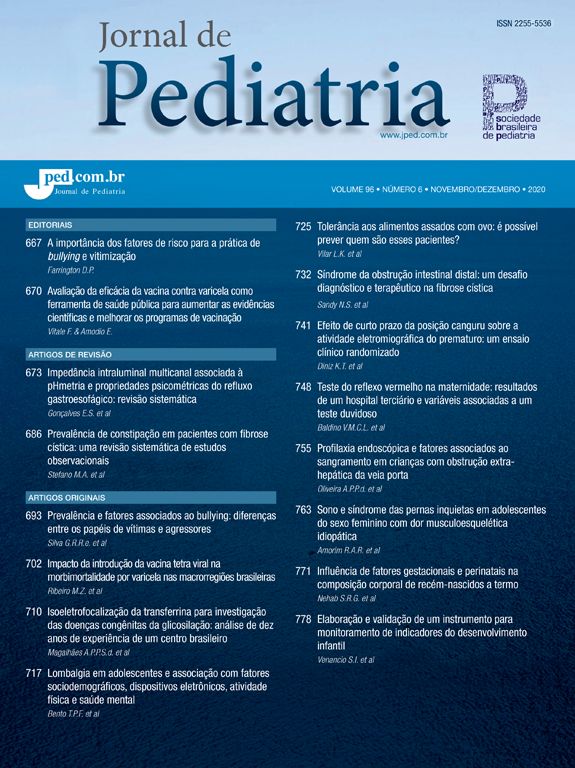To describe an intervention to provide support and encouragement to mothers of preterm newborns and to evaluate its effect on breastfeeding rates in the first 6 months after hospital discharge.
MethodsOne hundred newborns and their mothers were selected consecutively and prospectively according to order of birth. The mother-infant dyads were alternately assigned to one of two groups: one group received routine care (routine group), and the other group received the intervention (intervention group). The intervention consisted of individualized support in addition to the routine support provided in the Neonatology Service. Before delivery, one of the researchers was introduced to the mother and offered her information about the delivery. The researcher was also present at delivery, made an early visit to the infant in the intensive care unit, provided constant support for the mother to express breast milk and to maintain lactation, gave the mother information about maternal and infant hospital discharge, and provided outpatient follow-up after discharge.
ResultsThirty-six dyads completed the study. The characteristics of mothers and infants, as well as causes of exclusion, were similar in the two groups. In the routine group, 38.9% of the infants were being breastfed at hospital discharge, and median breastfeeding duration was 54 days. In the intervention group, 80.5% were being breastfed at discharge, and median breastfeeding duration was 91 days (p<0.01).
ConclusionsSimple support measures offered to mothers during hospitalization and outpatient follow-up had a very positive effect on breastfeeding rates.
Avaliar o impacto de um modelo de incentivo ao aleitamento materno baseado no apoio e orientação de mães de recém-nascidos pré-termo nas taxas de aleitamento materno nos primeiros 6 meses após a alta hospitalar.
MétodosForam selecionados de forma prospectiva e seqüencial, por ordem de nascimento, 100 recém-nascidos pré-termo e suas mães. As díades, de forma alternada uma a uma, foram alocadas em dois grupos: um formado por mães assistidas segundo a rotina do serviço (grupo rotina) e outro formado por mães submetidas à intervenção (grupo intervenção). A intervenção consistiu em apoio individualizado às mães, além do já oferecido rotineiramente pelo serviço. Foi iniciada já no pré-parto, com a apresentação do pesquisador e oferecimento de orientações sobre o parto, seguida da presença na hora do parto, visita precoce à criança na unidade de terapia intensiva, constante apoio para ordenha e manutenção da lactação, orientações à alta materna, à alta da criança e seguimento ambulatorial.
ResultadosConcluíram o estudo 36 pares por grupo. As principais características das mães, crianças e causas de exclusão foram semelhantes entre os dois grupos. Por ocasião da alta hospitalar, 38,9% das crianças do grupo rotina recebiam aleitamento materno, e essas tiveram tempo mediano de aleitamento de 54 dias. No grupo intervenção, 80,5% estavam sendo amamentadas à alta, e a mediana do tempo de aleitamento foi de 91 dias (p < 0,01).
ConclusõesAtitudes simples de apoio à mãe durante internação e seguimento ambulatorial repercutiram de forma muito positiva nas taxas de aleitamento materno.










